 Petzlover
Petzlover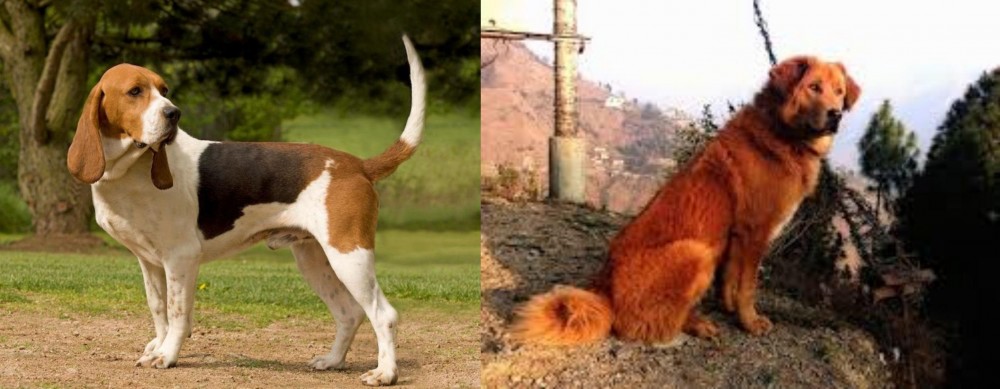 Artois Hound is originated from France but Himalayan Sheepdog is originated from India. Artois Hound may grow 12 cm / 4 inches shorter than Himalayan Sheepdog. Artois Hound may weigh 15 kg / 33 pounds lesser than Himalayan Sheepdog. Both Artois Hound and Himalayan Sheepdog has almost same life span. Artois Hound may have more litter size than Himalayan Sheepdog. Artois Hound requires Low Maintenance. But Himalayan Sheepdog requires High Maintenance
Artois Hound is originated from France but Himalayan Sheepdog is originated from India. Artois Hound may grow 12 cm / 4 inches shorter than Himalayan Sheepdog. Artois Hound may weigh 15 kg / 33 pounds lesser than Himalayan Sheepdog. Both Artois Hound and Himalayan Sheepdog has almost same life span. Artois Hound may have more litter size than Himalayan Sheepdog. Artois Hound requires Low Maintenance. But Himalayan Sheepdog requires High Maintenance
 The Artois Hound developed in France, essentially from the Picardy and Artois regions of northern France. The idea was to use them for the hunting of hares, fox and wild boars during the time of King Henry IV and Louis XIII. Unfortunately, with cross-breeding, the bloodline all but deteriorated and it took a couple of decades for the Artois breed to be restored.
The Artois Hound developed in France, essentially from the Picardy and Artois regions of northern France. The idea was to use them for the hunting of hares, fox and wild boars during the time of King Henry IV and Louis XIII. Unfortunately, with cross-breeding, the bloodline all but deteriorated and it took a couple of decades for the Artois breed to be restored.
After the 2nd world war, there was once again concern about the breed becoming extinct. A certain Mr.Audréchy from northern France stepped in and the breed was built up again. Today this hunting dog is essentially found in France, and a few hundred of them are registered with the Federation Cynologique Internationale (FCI), and both the FCI and the United Kennel Club (UKC) recognize the Artois Hound.
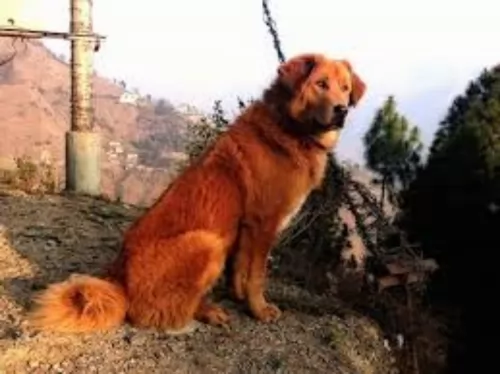 The Himalayan Sheepdog comes from Nepal originally and was bred as a guardian for livestock. The exact location where the breed comes from is not documented well but it is thought that they come from North India and Nepal and they are rare outside of that area. They are a mountain dog – close in ancestry to the Himalayan Mastiff, and the Kinnaur Sheepdog of Tibet (Himalaya). All these Himalayan mountain dogs were all called “Gaddi dogs”. The term was used for all the large dogs no matter what their breeds actually were.
The Himalayan Sheepdog comes from Nepal originally and was bred as a guardian for livestock. The exact location where the breed comes from is not documented well but it is thought that they come from North India and Nepal and they are rare outside of that area. They are a mountain dog – close in ancestry to the Himalayan Mastiff, and the Kinnaur Sheepdog of Tibet (Himalaya). All these Himalayan mountain dogs were all called “Gaddi dogs”. The term was used for all the large dogs no matter what their breeds actually were.
The Himalayan Sheepdog is called by various names depending on where they were from. They are called Gaddi Leopardhund in Himachai Pradesh, In Nepal they are known as Bhote Kukkur or Bhotiya. Then there are Chamba Gaddi dogs. They are an ancient breed that existed before documentation on breeds was kept.
They acted as both guardians and herders. They guarded the mountain men’s encampments as well as the livestock. They were also used at times to hunt large animals. Today they are found only within Nepal and India. These Himalayan Sheepdogs are on the verge of extinction in India. There are no breeding programs and their isolation has caused the dilution of the gene pool. It is not recognized by any clubs including the UKC and the AKC.
 Looking much like the Basset Hound and also referred to as French Artois Hound, Picard or Briquet, the muscled Artois Hound is a descendant of the Bloodhound and a rare breed.
Looking much like the Basset Hound and also referred to as French Artois Hound, Picard or Briquet, the muscled Artois Hound is a descendant of the Bloodhound and a rare breed.
The dog is well built with a large head, large eyes and large, hanging ears. He has a short coat, with the main colours being white, tan and black.
The energetic Artois Hound is a medium-to-large sized dog breed, and by FCI standard, they should be 20 inches to 22 3/4 inches tall from ground to withers.They weigh between 25 – 30kg or 55 and 65 pounds, are well muscled and strong with a short, dense coat.
These dogs are known for their endurance, making them ideal as a hunting- or walking companion. The Artois Hound is full of energy and he will require plenty of boisterous activities as well as training and socialization.
Although this is an intelligent breed, he can be stubborn. He’s a friendly character and will get on well with children, loving their energy and games. He’s amicable, and will also get on with other pets in the home too.
Artois Hounds are loyal to their human families. They’re not particularly good watchdogs though as they aren’t aggressive dogs, being social and friendly.
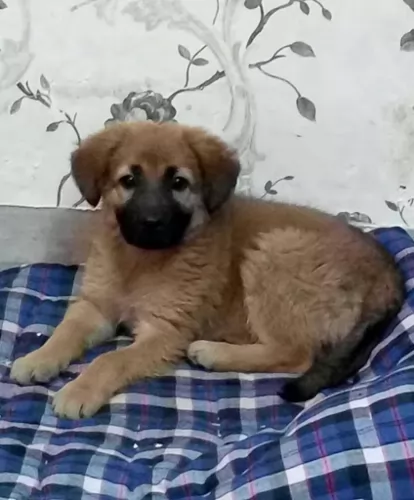 The breed is a large dog, very athletic and strong. The Himalayan Sheepdog is muscular with a deep chest, strong neck and strong shoulders. It has a medium tail that is thick and busy, curled high over its back. It is a daunting dog that can be very intimidating. They have well padded and large paws. With a broad head and wide forehead, they have a strong, wide muzzle. Their ears are high on the head and hang from the sides. They have almond shaped medium eyes that are deep set with a black nose.
The breed is a large dog, very athletic and strong. The Himalayan Sheepdog is muscular with a deep chest, strong neck and strong shoulders. It has a medium tail that is thick and busy, curled high over its back. It is a daunting dog that can be very intimidating. They have well padded and large paws. With a broad head and wide forehead, they have a strong, wide muzzle. Their ears are high on the head and hang from the sides. They have almond shaped medium eyes that are deep set with a black nose.
They are a very active and swift dogs. By their nature they are constantly in motion, patrolling their territory and guarding their flock and people. Their devotion to their people and their courage is the stuff of legends. Their coat is double with a large ruff around their necks that resembles a mane. The inner coat is dense and short while the outer coat is longer but dense as well.
 Your Artois is an ideal family pet when you provide him with the love and attention that any member of a family deserves. Buy your Artois from a reputable breeder so that all the excellent characteristics of this lively breed are found in your 4-legged friend.
Your Artois is an ideal family pet when you provide him with the love and attention that any member of a family deserves. Buy your Artois from a reputable breeder so that all the excellent characteristics of this lively breed are found in your 4-legged friend.
The Artois is just waiting to be your devoted companion and will promise unconditional friendship in exchange for quality food, veterinary care, exercise and attention. To make sure you never lose your pet, outfit him with a collar and ID tag so that should he become lost, the chances are far better that he’ll be found.
A dog isn’t a human and you want to always make sure that you’re reasonable with what to expect from him. Most little problems with your wonderful friend can be solved with kindness, compassion and patience.
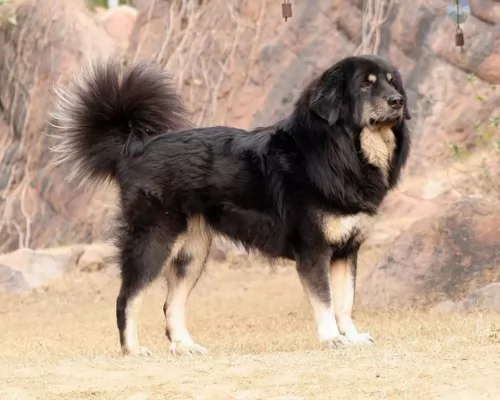 Yes with enough proper socialization
Yes with enough proper socialization
Protection and loyalty
They are not especially adaptable and need a large yard. They are not good in an apartment.
Intelligent but stubborn and independent making them able to learn if they want to.
 There are no known health problems that come as specific to the Artois Hound. The health problems that do develop are common ailments that can be found in most other dog breeds too.
There are no known health problems that come as specific to the Artois Hound. The health problems that do develop are common ailments that can be found in most other dog breeds too.
Your Artois Hound will still need to visit the vet as a puppy for a thorough check-up as well as vaccinations and for any health issues he may have.
check for bad breath problems. Dental plaque can cause a nasty odour that will require dental treatment from a professional. The dog’s teeth can be maintained by brushing the teeth regularly with special canine toothpaste- and brush. However your dog’s bad breath could be indicative of other health problems such as diabetes.
Parasites, fleas, ticks and worms – there are many new treatments to manage these pests and your veterinarian will guide you towards a treatment for your pet.
if your pet is exposed to mosquitoes often, the insect carries the worm from dog to dog. Speak to your vet about treatment, more so when you live in a warm, wet area where mosquitoes thrive.
Your Artois Hound puppy will have to be vaccinated with a combo vaccine to protect him from hepatitis, distemper, leptospirosis, parvovirus and parainfluenza. They should have received their first immunizations by 8 weeks of age. Speak to your vet about rabies shots as well.
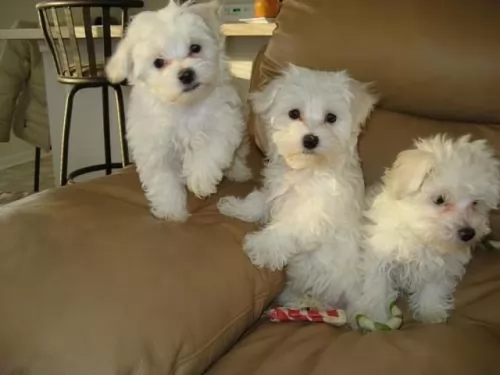 This is a pretty healthy breed with very few health issues. They have the usual large dog issues.
This is a pretty healthy breed with very few health issues. They have the usual large dog issues.
 The beauty with the Artois Hound is that he is low-maintenance and he will only require the basic tender loving care to keep him happy and healthy.
The beauty with the Artois Hound is that he is low-maintenance and he will only require the basic tender loving care to keep him happy and healthy.
The Artois isn’t a high maintenance dog and the low-shedding, short-haired coat will required a good brush a couple of times a week to remove loose hairs. The dog only requires a bath when absolutely necessary as bathing dries out natural oils in the skin. Never use a human shampoo – only a proper dog shampoo.
Artois Hound puppies up to 12 weeks will need to be fed every 6 hours. Puppies of 6 months and older can have 2 bowls of food, and from one year of age, one bowl of food may be adequate. It’s an individual choice as 2 smaller meals a day can also suffice. Speak to your vet about premium-quality dry- and wet foods as well as about making your own dog food. You want to ensure the foods eliminate mineral and vitamin deficiencies. Ensure there is ALWAYS a bowl of fresh, cool water within your dog’s reach.
This is a hunting dog so he will need plenty of exercise. Without regular exercise, a dog like the Artois becomes frustrated and destructive. Your Artois is your 4-legged family member, and according to age and individual traits will benefit from throwing ball games, pulling on ropes and running while you cycle. The cherry on the top is that you benefit from the exercise too!
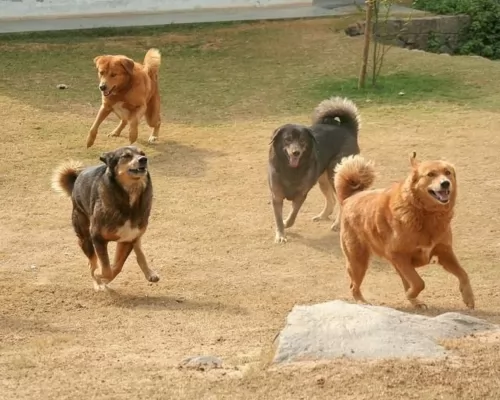 Feed the puppy 2-3 times a day with a total of two cups of a quality dog food for large breed dogs.
Feed the puppy 2-3 times a day with a total of two cups of a quality dog food for large breed dogs.
Feed the adult dog twice a day with 3 to 4 cups of a high quality dry dog food for large breed dogs.
They are very strong and athletic.
The Himalayan Sheepdog needs exercise but not to be overworked. They should be taken on long walks at least once a day. They might play fetch or run in a yard, but they don’t like too much exercise.